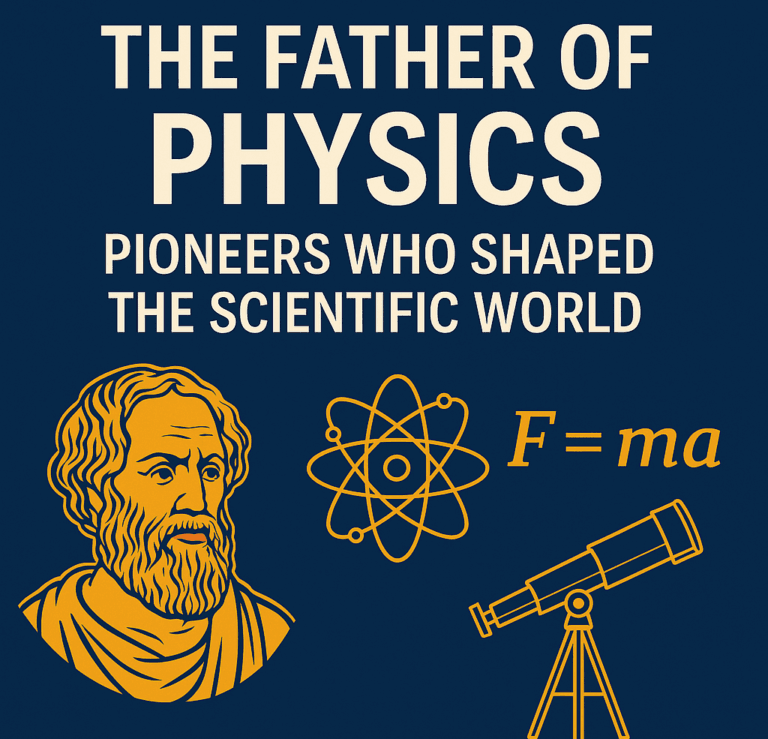Introduction: Why Understanding the Roots of Mathematics Matters
Mathematics is more than just a subject we study in school—it’s the hidden language behind everything we experience in life. From the structure of galaxies to the algorithms powering your smartphone, math forms the foundation of our modern world. Yet, despite its universal presence, few people stop to ask: Where did it all begin? Who laid the foundation for this intricate system that governs everything from science to finance?
Understanding the roots of mathematics isn’t just an academic exercise. It deepens our appreciation for its evolution, shows how knowledge builds over generations, and sheds light on the geniuses who shaped our intellectual history. When we explore its origin, one question stands out: Who is the father of mathematics? Why does this question still matter in an age of artificial intelligence, quantum computing, and space exploration?
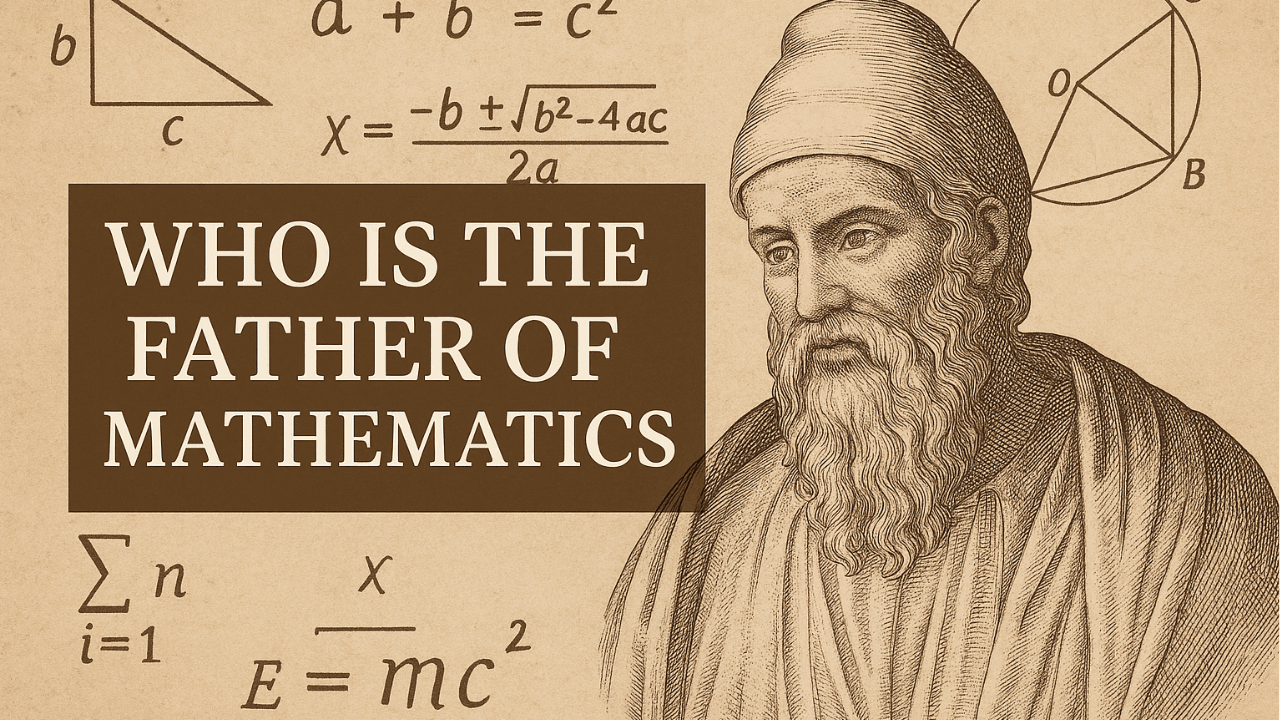
The search for the “Mathematics of father” leads us into ancient civilizations, across millennia, and into the minds of pioneering scholars who saw patterns in the stars and structure in the chaos. Understanding who the father of mathematics is—and how his work continues to influence everything from geometry to algorithms—provides a deeper, more meaningful lens on the subject we often take for granted.
In this blog, we’ll not only answer “Who is the father of mathematics?” but also explore why his legacy still echoes through every equation and calculation we rely on today.
Who is the Father of Mathematics? – The Legacy of Archimedes
Whenever the question arises—“Who is considered the father of mathematics?”—Archimedes is almost always the foremost name mentioned. Revered across centuries, Archimedes is widely considered the father of mathematics due to his pioneering discoveries that laid the foundation for numerous branches of the discipline—from geometry and calculus to mechanics and fluid dynamics.
Archimedes: The Genius of Ancient Syracuse
Born around 287 BCE in the city of Syracuse, a Greek city-state on the island of Sicily, Archimedes was not only a mathematician but also a physicist, engineer, inventor, and astronomer. Despite the scarcity of detailed biographical records, historians agree that his intellect and innovations far outpaced his time.
He is said to have studied in Alexandria, where he interacted with other great minds of ancient mathematics. However, most of his influential work was done in Syracuse, where he combined theoretical rigor with practical inventions—an unusual combination for scholars of that era.
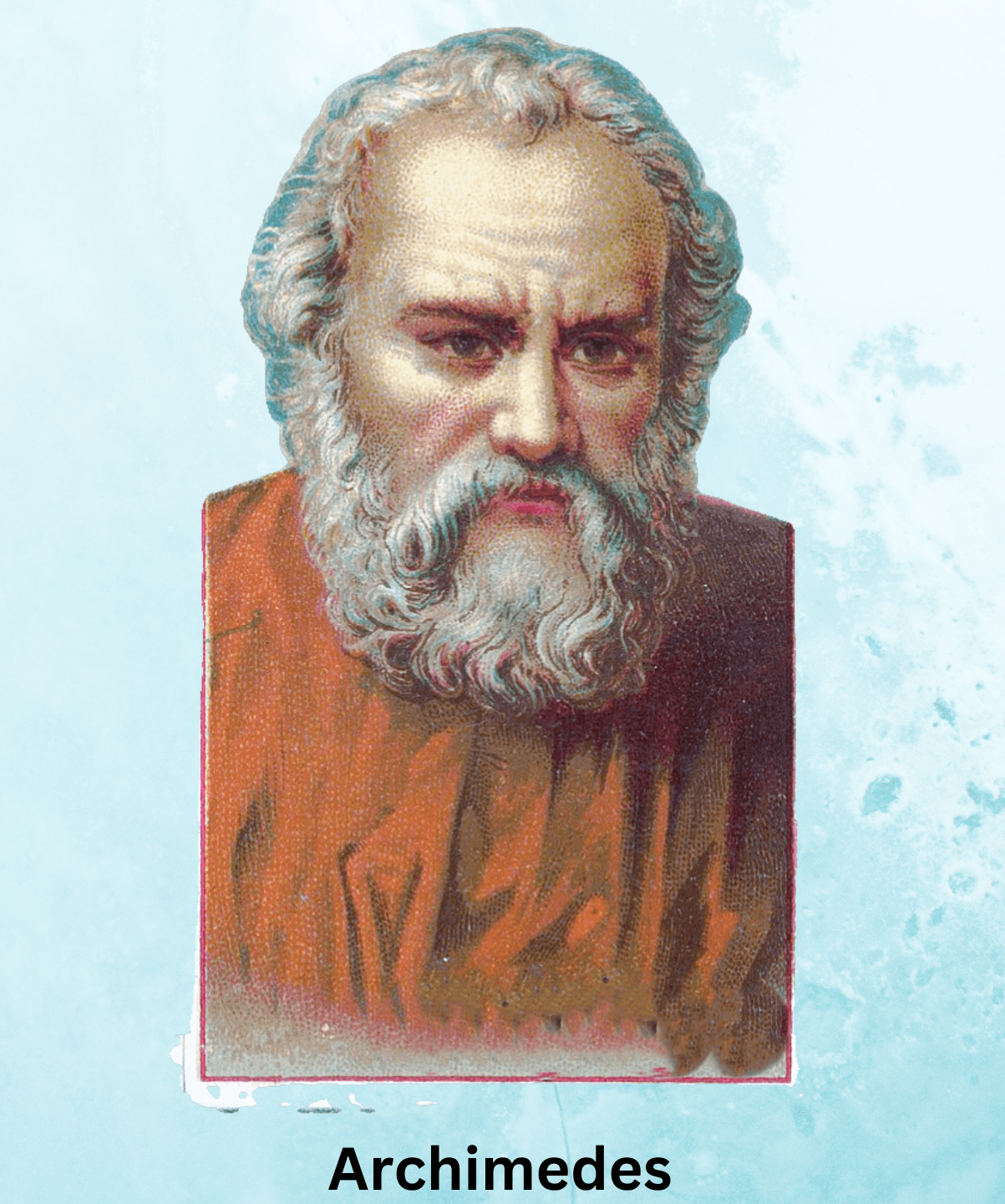
Archimedes’ Contributions to Mathematics
The contributions of Archimedes to mathematics are monumental and continue to inspire modern research and applications. Some of the most influential include:
- Pioneering the concept of infinitesimals, Archimedes developed techniques resembling integral calculus long before Newton and Leibniz formalized the field.
- The principle of buoyancy: Known as Archimedes’ Principle, it laid the foundation for fluid mechanics.
- Mathematical formulas for areas and volumes: He precisely calculated the surface area and volume of spheres, cones, and cylinders.
- The Archimedean spiral: A geometrical concept still used in engineering and physics today.
His works like On the Sphere and Cylinder, The Method, and Measurement of a Circle are considered groundbreaking and reflect how deeply he understood the abstract nature of mathematics.
Global Recognition as the “Father of Mathematics”
So, who is father of mathematics? Most historians and scholars unanimously honor Archimedes with that title, due to the profound scope and depth of his work. His mathematical philosophy influenced the likes of Isaac Newton, Leonardo da Vinci, and even modern theoretical physicists.
As noted by the British historian Sir Thomas Heath, “Archimedes stands among the trio of the greatest mathematicians the world has ever known—alongside Newton and Gauss.”
Similarly, Plutarch admired Archimedes for dedicating himself to the realm of pure thought rather than material success: “He poured his passion into abstract inquiry, untouched by the everyday demands of life.
Why Archimedes Still Matters Today
Archimedes’ legacy as the father of mathematics isn’t merely symbolic. His approach—merging pure theory with applied science—has become a model for STEM disciplines worldwide. Whether it’s in AI algorithms, aerospace engineering, or geometric modeling, echoes of Archimedes’ genius continue to shape the 21st century.
Archimedes’ Groundbreaking Contributions to Mathematics
The title of “Who is father of mathematics” is often attributed to Archimedes not just for his status as a revered figure in ancient history, but for the groundbreaking mathematical discoveries he made that continue to influence science, technology, and mathematics today. His work wasn’t just theoretical—it laid the foundational principles for modern geometry, calculus, and numerical systems. Let’s explore the most influential contributions that solidified his legacy.
The Discovery and Approximation of Pi (π)
One of Archimedes’ most celebrated early mathematical discoveries is his remarkably accurate estimation of π (pi)—the ratio of a circle’s circumference to its diameter. Using an innovative method involving inscribed and circumscribed polygons, Archimedes calculated that π lies between 3.1408 and 3.1429, an extraordinary feat for his time.
This approach showcased his brilliance in approximating irrational numbers through geometric means, long before modern decimal systems or computers existed. It wasn’t just a numerical estimate—it represented a deep understanding of limits and infinite processes, concepts at the core of calculus today.
Why it matters: Archimedes’ method of estimating π remained the most accurate technique for over a thousand years, influencing mathematical computations through the Middle Ages and into the Renaissance.
The Method of Exhaustion – A Precursor to Calculus
Another of Archimedes’ early mathematical discoveries was the Method of Exhaustion, an ancient technique for finding areas and volumes. By breaking down shapes into smaller and smaller pieces, he could determine their total area with increasing precision.
This technique foreshadowed the integral calculus developed by Newton and Leibniz nearly 2,000 years later. Though lacking formal symbols or calculus notation, Archimedes laid the groundwork for thinking about infinite series and the summation of infinitesimal quantities.
This is one reason why, when people ask “Who is father of mathematics?”, Archimedes is the clear answer—because he introduced techniques still foundational in modern analysis.
Formulas for the Surface Area and Volume of a Sphere
In his treatise On the Sphere and Cylinder, Archimedes derived the exact surface area and volume of a sphere and proved that:
- The volume of a sphere is 2/3 that of the cylinder in which it is enclosed.
- The surface area of a sphere is 4πr².
These discoveries were not just important—they were revolutionary. They gave geometry a level of sophistication that hadn’t existed before and provided essential formulas that are still taught in classrooms today.
According to legend, Archimedes was so proud of this discovery that he requested a sphere inside a cylinder be carved onto his tombstone.
The Exponent Method for Representing Large Numbers
Archimedes also made early mathematical discoveries in the field of numerical representation. In his work The Sand Reckoner, he developed a method to represent numbers far larger than those previously conceivable. To calculate the unimaginable, Archimedes devised a positional numeral system based on powers of ten, enabling him to estimate how many grains of sand could theoretically fill the cosmos.
This pioneering use of exponents and large number systems laid the groundwork for scientific notation and computational mathematics. It showed his willingness to push boundaries—not just in physical sciences, but also in abstract numerical theory.
Why Archimedes Earned the Title “Father of Mathematics”
When we revisit the question, “Who is father of mathematics?”, the answer becomes even clearer in the context of these monumental contributions. Archimedes didn’t merely solve problems—he created mathematical methods that would define the field for millennia. From his ingenious use of geometry and limits to his conceptualization of infinite processes, Archimedes’ early mathematical discoveries shaped the very framework of modern mathematics.
The Father of Modern Mathematics – René Descartes
While Archimedes is often regarded as the father of mathematics for his ancient and foundational work, many historians and scholars argue that René Descartes deserves the title “Father of Modern Mathematics”. His revolutionary ideas in the 17th century bridged the gap between algebra and geometry and redefined how we understand space, equations, and reasoning itself.
Why Some Consider Descartes the Father of Modern Mathematics
When we ask, “Who is father of mathematics?”, the answer isn’t always singular. Descartes’ contributions were so pivotal in shaping modern mathematical frameworks that he is often distinguished with the title “father of modern mathematics.” His ability to connect pure logic, algebraic equations, and geometric forms changed the direction of mathematical thought and inspired future innovations in calculus, physics, and engineering.
His works—especially La Géométrie (1637)—laid the groundwork for analytical geometry, a key precursor to both calculus and modern physics.

The Cartesian Coordinate System: A Unifying Language
Descartes’ most influential contribution is the invention of the Cartesian coordinate system—a method of representing geometric shapes with algebraic equations on a two-dimensional plane using x and y axes.
This innovation allowed geometry to be expressed algebraically, enabling:
- Plotting of curves and shapes.
- Formulation of equations representing lines, parabolas, circles, and more.
- The development of calculus by Newton and Leibniz, built on Descartes’ coordinate framework.
By merging geometry and algebra, Descartes gave mathematicians a universal language to model real-world phenomena, from planetary motion to architectural design.
This is a major reason he is often called the father of modern mathematics—his methods introduced a level of abstraction and universality that empowered future discoveries.
Philosophical Influence: “Cogito, ergo sum”
Descartes wasn’t just a mathematician—he was a philosopher whose thinking fundamentally influenced the scientific method. His famous quote:
“Cogito, ergo sum” (I think, therefore I am)
—emphasizes rational inquiry as the path to knowledge. This philosophical approach had ripple effects in mathematics, encouraging rigorous proof-based systems and logical reasoning, which are the hallmarks of modern mathematical practice.
His dual legacy in philosophy and mathematics makes Descartes a monumental figure whose ideas transcend disciplines.
Why Descartes Still Matters Today
In schools across the globe, students learn about the Cartesian plane from an early age. Scientists use it to graph data. Engineers use it to design systems. Programmers use it in graphics and modeling. This enduring relevance reinforces why René Descartes is often credited as the father of modern mathematics, even as we continue to ask, “Who is father of mathematics?” in broader historical context.
His elegant integration of logic, algebra, and geometry continues to shape nearly every branch of mathematics and science today.
Other Mathematicians Who Pioneered the Field
While Archimedes and Descartes are often central in discussions around who is the father of mathematics, many Greek mathematicians and scholars from other ancient civilizations also made early mathematical discoveries that laid the groundwork for modern math. Here are a few monumental figures whose contributions remain deeply embedded in mathematics today:
Euclid – The Father of Geometry
Euclid, a prominent Greek mathematician from around 300 BCE, is famously known as the “Father of Geometry.” His seminal work, Elements, is one of the most influential books in the history of mathematics. It compiled all known geometric knowledge of the time and organized it into a logical, axiomatic system that is still taught today.
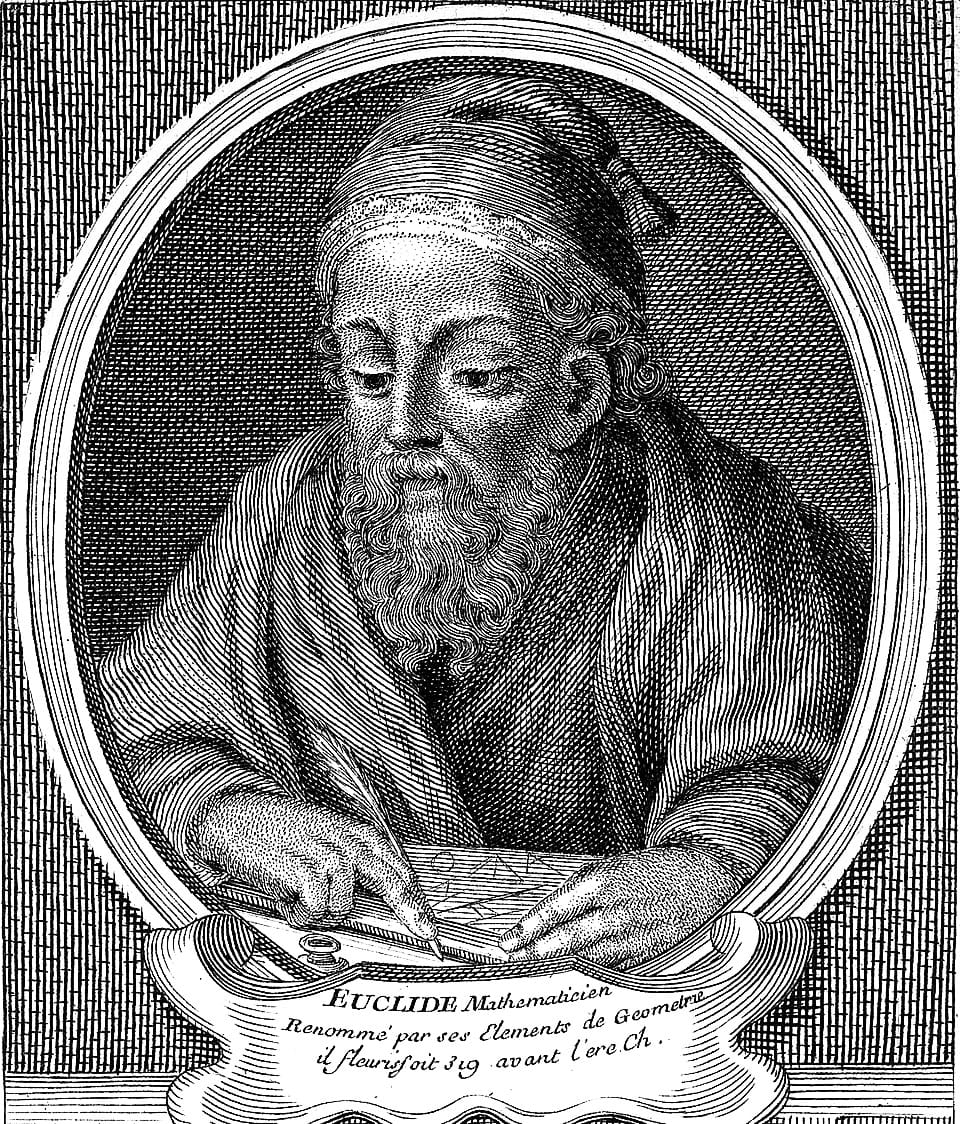
- Early mathematical discoveries in Elements include definitions, postulates, and theorems that form the basis of plane geometry.
- His logical approach to proofs helped establish the deductive structure of modern mathematics.
- Euclid’s influence stretched from ancient Greece to the Renaissance and remains foundational in schools and universities even now.
Pythagoras – The Power of Numerical Relationships
Another iconic Greek mathematician, Pythagoras, is best known for the Pythagorean Theorem, which links the sides of a right-angled triangle. But his contributions go beyond just geometry:
- He believed that numbers were the essence of all things, blending mathematics with philosophy and music theory.
- The Pythagorean school studied numerical ratios, harmonics, and even the mystical properties of numbers.
- These early mathematical discoveries helped develop number theory, a field that would become crucial for cryptography and computing.
Brahmagupta – The Indian Genius Who Defined Zero
From 7th-century India, Brahmagupta made groundbreaking contributions that changed the mathematical world forever.
- He was one of the first to define zero as a number, not just a placeholder—an idea that revolutionized arithmetic and algebra.
- Brahmagupta developed rules for operations involving zero and negative numbers, forming the basis of modern number systems.
- His work Brahmasphutasiddhanta outlined formulas for solving quadratic equations, long before similar methods reached Europe.
As we consider early mathematical discoveries, Brahmagupta’s role in formalizing arithmetic operations shows how the East contributed significantly alongside Greek mathematicians to global mathematical progress.
Hidden Figures: Lesser-Known Mathematicians Who Shaped the Field
While names like Archimedes and Euclid often take center stage, many lesser-known yet revolutionary minds have also helped shape the landscape of mathematics. These hidden figures span continents, cultures, and even gender norms, and their early mathematical discoveries still influence math today.
Al-Khwarizmi – The Inventor of Algebra
Often referred to as the father of arithmetic and algebra, the Persian scholar Muhammad ibn Musa Al-Khwarizmi lived during the Islamic Golden Age in the 9th century. “The very word ‘algorithm’ finds its roots in his name, a lasting tribute to his profound influence on mathematical thought.” In his book Al-Kitab al-Mukhtasar fi Hisab al-Jabr wal-Muqabala, he laid down the foundations of algebra—a term derived from “al-Jabr.”
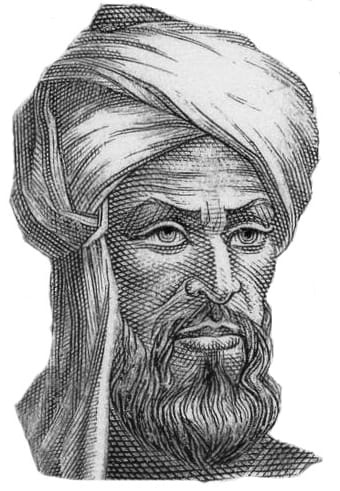
- He systematically solved linear and quadratic equations, introducing step-by-step processes for problem-solving—essentially, early algorithms.
- Al-Khwarizmi’s work formed the bridge between Greek mathematics and the European Renaissance, influencing centuries of mathematical development.
Hypatia – The First Known Female Mathematician
Hypatia of Alexandria (circa 360–415 CE) was a philosopher, astronomer, and mathematician who defied the gender expectations of her time.
- As the head of the Neoplatonic school in Alexandria, she taught geometry, algebra, and astronomy.
- She edited and commented on key mathematical texts, including works by Diophantus and Apollonius.
- Despite limited surviving records, Hypatia’s legacy highlights the overlooked contributions of women in early mathematical history.
Though she is not typically called the father of arithmetic, her intellectual leadership made her a key figure in preserving and expanding ancient mathematics.
Aryabhata – The Indian Mind Behind Trigonometry
Aryabhata, born in 476 CE, was one of India’s most brilliant early mathematicians and astronomers.
- He introduced sine functions in trigonometry and calculated the value of pi (π) with astonishing precision for his time.
- Aryabhata proposed that the Earth rotates on its axis, a revolutionary astronomical insight centuries ahead of its time.
- His book Aryabhatiya tackled algebra, arithmetic, and celestial models, placing him among the titans of early mathematical discoveries.
Aryabhata’s work was so influential that Indian satellite missions have been named after him, and his trigonometric concepts are foundational in modern science and engineering.
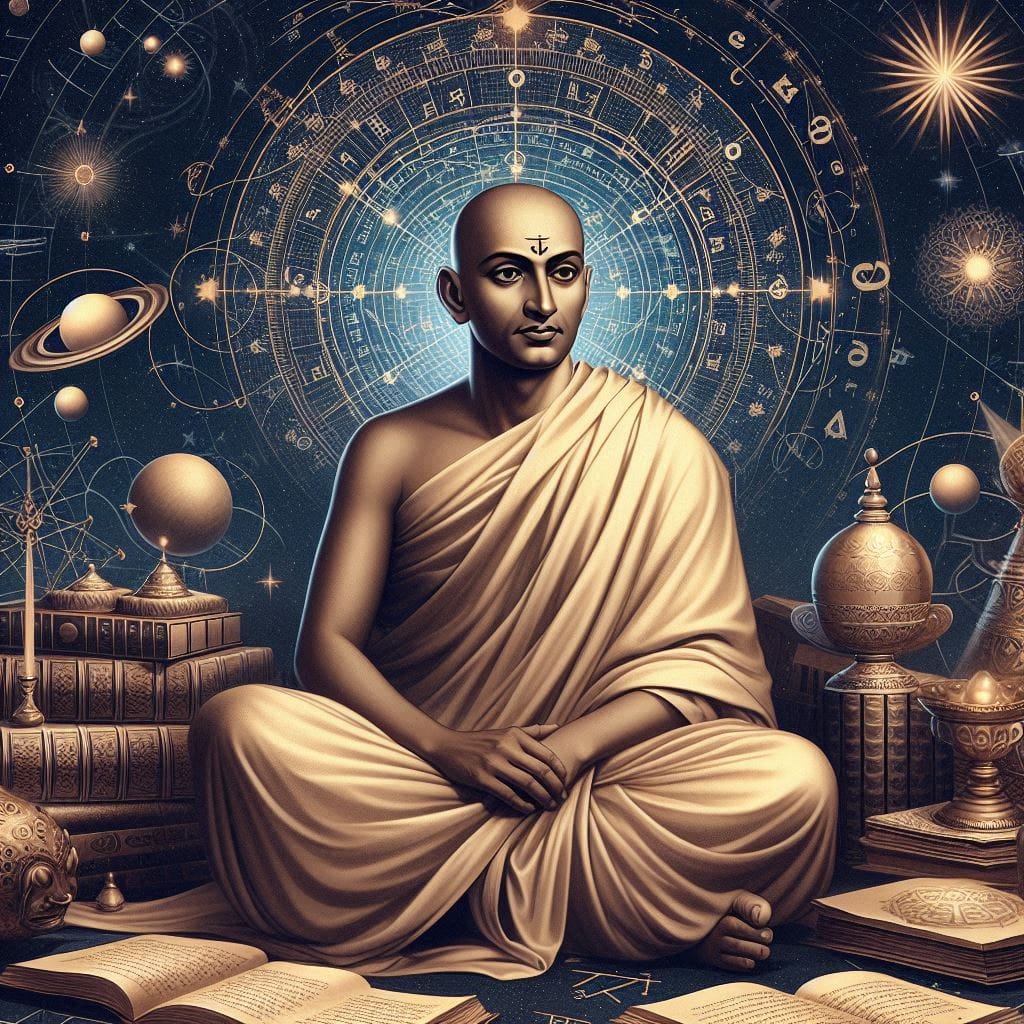
These thinkers—from Greek mathematicians to Eastern pioneers—demonstrate that the answer to “Who is the father of mathematics?” is complex and beautifully global. Each left behind a lasting legacy, shaping the world of numbers and logic in unique and powerful ways.
The Evolution of Mathematics: From Ancient to Modern Times
From counting stones in Mesopotamia to running complex simulations in artificial intelligence, mathematics has come a long way. The story of math is a story of human curiosity, creativity, and our relentless pursuit of understanding the universe. To appreciate the contributions of who is the father of mathematics in world, we must explore the larger tapestry of mathematical evolution.
Ancient Civilizations and the Birth of Numbers
Long before formal systems were developed, ancient civilizations used mathematics for agriculture, astronomy, and commerce.
- The Babylonians used base-60 for time and angles.
- Egyptians calculated volumes for pyramid construction.
- “The Indus Valley civilization showcased remarkable sophistication in urban design and standardized systems of measurement—and many of them predate the contributions of the father of modern mathematics, René Descartes.
Mathematics During the Classical Era
The classical period, particularly in Greece and India, saw the rise of formal logic and proofs.
- Greek mathematicians like Euclid and Archimedes structured mathematical logic and introduced geometry.
- In India, Aryabhata and Brahmagupta developed early concepts of zero, algebra, and trigonometry.
This was the age when figures now considered the father of mathematics in world shaped the very principles we still use.
Islamic Golden Age and the Rise of Algebra
Between the 8th and 14th centuries, Islamic scholars like Al-Khwarizmi and Omar Khayyam advanced algebra, number theory, and applied mathematics in ways that directly influenced European Renaissance thinkers.
The Modern Era – From Descartes to Digital
The 17th century brought about René Descartes, known as the father of modern mathematics, for bridging algebra and geometry with the Cartesian coordinate system.
Later, Isaac Newton and Gottfried Wilhelm Leibniz independently developed calculus, launching the world into a new era of mathematical power.
Contemporary Mathematics: The Age of Technology
Today, mathematics is deeply intertwined with innovation:
- Quantum computing relies on matrix mechanics and complex number systems.
- Cryptography secures global communication through prime factorization and number theory.
- Artificial Intelligence and machine learning are driven by linear algebra, calculus, and statistics.
So when asking “Who is the father of mathematics in world?”—the answer isn’t singular. It’s a global legacy that has evolved over thousands of years and continues to grow, building on the foundations laid by the great minds of the past.
Conclusion: The Everlasting Legacy of Mathematics
Mathematics isn’t just a subject—it’s a language of the universe. From ancient observations to modern data science, it powers progress in every field. And it all began with pioneers whose ideas still shape our thinking today.
Recapping the Giants of Mathematical History
- Archimedes, often referred to as the father of mathematics, gave us foundational principles of geometry and mechanics.
- Euclid systematized geometric knowledge.
- Al-Khwarizmi created algebra.
- René Descartes, the father of modern mathematics, connected math with logic and philosophy.
- And thinkers like Aryabhata, Brahmagupta, and Hypatia expanded the scope beyond the Western world.
These individuals embody the mathematics of father—visionaries who planted the seeds of logic and innovation that still flourish today.
Continuing the Legacy in the Modern World
Today’s students, educators, and researchers walk in the footsteps of these legends. Universities, tech companies, and space agencies continue to explore uncharted mathematical territory—from black hole thermodynamics to neural networks.
Mathematics remains an open frontier, where young minds can contribute to what began millennia ago. Every equation solved, every theory proven, and every model built honors the father of mathematics and the collective genius behind it.
A Call to Curiosity
If this exploration sparked your interest, dive deeper. Read about Greek mathematicians, study early mathematical discoveries, or explore modern fields like mathematical biology, game theory, or computational physics.
Because in the end, mathematics isn’t just history—it’s the future. And you might just be part of the next great chapter.
📚 Related Reads You Might Enjoy:
If you found the story of the Father of Mathematics intriguing, you’ll definitely want to check out these other insightful reads:
-
👉 Who Is the Father of Chemistry? – Discover the brilliant mind who laid the foundation for modern chemistry.
-
👉 Who Is the Father of Physics? – Uncover the legacy of the genius who revolutionized our understanding of the universe.
-
👉 Top 10 Female Inventors Who Changed the World – Celebrate the inspiring women whose inventions transformed history.





